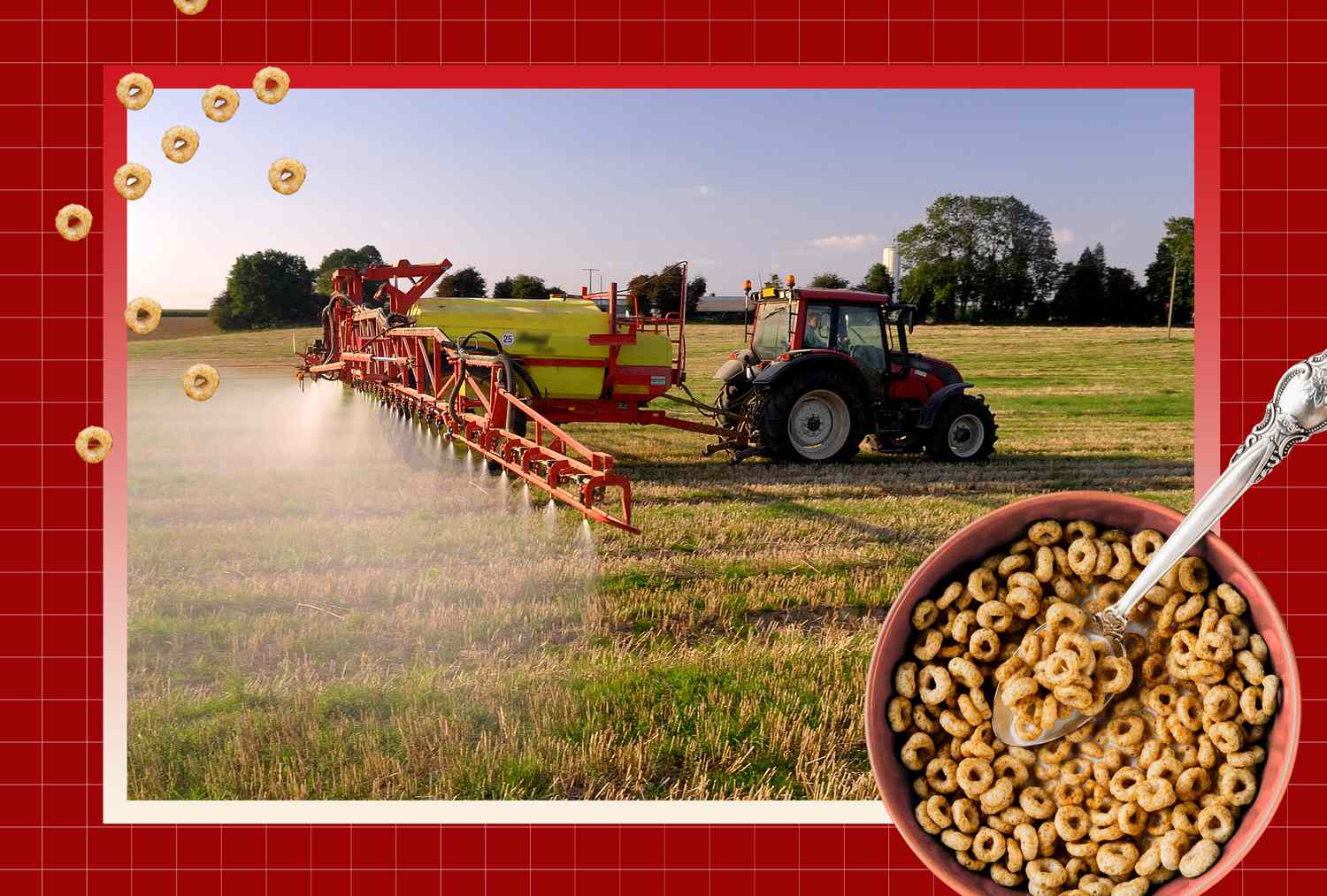
The #1 Vegetable for Heart Health, According to a Cardiologist
Key Takeaways
- Nutrient-packed Brussels sprouts are often overlooked for heart health, say experts.
- Brussels sprouts provide heart-friendly fiber, potassium, nitrates, and vitamins C and K.
- From pizzas to tacos to salads, there are loads of tasty ways to prepare them.
Every 33 seconds in the U.S., someone dies from cardiovascular disease. As alarming as this sounds, we have some good news. Actually, great news! There’s a tasty, easy-to-prepare vegetable that can help improve your heart health. And that vegetable is Brussels sprouts.
These cabbage-like little veggies are so great for your heart that cardiologist Carl Lavie Jr., M.D., FACC, medical director of Cardiac Rehabilitation and Prevention at Ochsner Health, says they’re one of his top choices for heart health because, quite simply, “It’s one many do not consider!” Elana Natker, M.S., RDN, a registered dietitian and owner of Sage Leaf Communications, agrees. “Brussels sprouts are an often-overlooked yet heart-healthy vegetable for so many reasons,” she says.
Let’s explore what makes this veggie a win for heart health, plus Lavie and Natker’s favorite ways to enjoy it.
How Brussels Sprouts Can Improve Heart Health
Rich in Fiber
Fiber is an important nutrient that many of us don’t get enough of. And Brussels sprouts are loaded with it. One cup of Brussels sprouts packs 6 grams of filling fiber, helping you get the recommended 25 to 38 grams you need each day.
Of course, we usually think of fiber for digestive health. However, research finds that its beneficial impact on gut health may indirectly enhance cardiovascular health. For instance, one study found that fiber-rich diets may lead to favorable changes in gut bacteria that help lower blood pressure.
How does that happen? Like the rest of us, your good gut bacteria need food to survive. In the case of your gut microbes, that food is fiber. But fiber is not just about nourishing your good gut bacteria. After gut microbes eat fiber, they produce beneficial compounds called short-chain fatty acids, which are believed to improve heart health by decreasing blood pressure.
Vitamin K
Vitamin K may not get as much attention as other vitamins. Yet, when it comes to heart health, it should. Conveniently, Brussels sprouts are one of the very best sources of this heart-supporting vitamin. One cup of cooked Brussels sprouts gives you two-and-a-half times the vitamin K you need per day.
What makes this often-overlooked vitamin so beneficial for your heart? For starters, vitamin K is a key nutrient for healthy arteries, says Natker. According to the National Institutes of Health, there also seems to be a connection between increased calcification of arteries and insufficient vitamin K intakes. However, experts still aren’t sure exactly why. In the meantime, adding more vitamin K-rich foods, like Brussels sprouts, to your plate could be a smart move for your heart.
Just know that vitamin K can interact with certain medications, especially blood thinners. So, if you are taking blood-thinning medication, speak with your health care provider before increasing your intake of these vitamin K-rich veggies.
Nitrates
In nutrition circles, nitrates are a controversial subject. So, you might be surprised to learn that research has found that natural nitrates in vegetables, like Brussels sprouts, may benefit your heart. How so? When we eat foods containing natural nitrates, our bodies convert them into a compound called nitric oxide that helps expand our blood vessels. This, in turn, allows blood to flow freely, lowering blood pressure and improving circulation. Research suggests the combination of nitrates and vitamin K may explain why cruciferous vegetables such as Brussels sprouts have a blood pressure-lowering effect.
Vitamin C
Did you know that Brussels sprouts are one of the best vegetable sources of vitamin C? One cup of cooked Brussels gives you nearly an entire day’s worth of this antioxidant vitamin. That’s not just good news for your immune system. Vitamin C plays a role in combating free radicals in the body that wreak havoc on your heart health and lead to conditions like atherosclerosis. And there’s more. Like dietary nitrates, vitamin C can also increase your body’s nitric oxide production to keep blood flow smooth and steady.
Potassium
Last but certainly not least, potassium is another nutrient in Brussels sprouts that keeps your heart in top shape. Unfortunately, most of us aren’t consuming enough of it. Brussels sprouts can help. One cup of cooked Brussels sprouts packs roughly 10% of the Daily Value of this under-consumed mineral.
That’s encouraging news for your heart, as potassium is a key player in blood pressure regulation. It works by offsetting the blood pressure-raising impact of sodium (which, conversely, most of us eat too much of). In addition to helping lower blood pressure for people with hypertension, it may also protect against heart disease and stroke, according to the Centers for Disease Control and Prevention.
Tips to Enjoy Brussels Sprouts
Whether you’re already a Brussels sprout lover or could use some fresh, new ideas, these tips can help.
- Roast or Pan-Fry in EVOO. Lavie is a big fan of olive oil for its heart-healthy benefits. While a simple side of Brussels roasted with olive oil is always a win, these Maple-Balsamic Roasted Brussels Sprouts will take yours to the next level.
- Toss into Salads. Pre-shredded Brussels sprouts are an easy way to up the nutrition ante of your salad. Next time you’re grocery shopping, grab a bag to add to a simple spring salad, a hearty Apple, Fig & Brussels Sprouts Salad or Giada De Laurentiis’ famous Roasted Broccoli & Brussels Sprouts Salad.
- Sprinkle on Pizza and Tacos. Mix up pizza or taco night with a generous topping of shaved Brussels on your pie or tacos, says Natker.
- Make Them Crunchy! Whether it’s our Crispy Roasted Brussels Sprouts with Panko or a sheet pan of Crispy Smashed Brussels Sprouts, they’re filled with crispy, crunchy goodness.
- Fire Up the Barbecue. Brussels sprouts are fantastic grilled. And you don’t even need to cut them! Simply toss whole Brussels sprouts with olive oil, salt, pepper and your favorite seasonings. Then, pop them on the grill for a flavorful twist for your next cookout.
- Enlist Your Air Fryer. You’ll be amazed by the results! Use this air-fryer Brussels sprout recipe as a road map—minus the bacon (we love bacon as much as anyone, but when heart health is a goal, less is more).
The Bottom Line
Brussels sprouts may not get as much attention as other vegetables. But heart-health experts think they should. These hearty, cruciferous veggies serve up heart-friendly fiber, nitrates, potassium and vitamins K and C. And there are a surprising number of tasty ways to prepare them! Whether they’re roasted, grilled, air-fried or tossed onto pizzas, tacos or salads, it’s time to say goodbye to Grandma’s plain, boiled Brussels sprouts and hello to better heart health!










